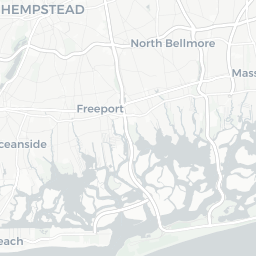New York City
Significant Room for Improvement
Hundreds of local jurisdictions restrict cooperation with immigration enforcement to some extent. The vast majority of these restrictions aim to stop the co-optation of local law enforcement, because over the last decade, the federal government has increasingly relied on local criminal justice systems as force multipliers to carry out immigration enforcement.
Cities and counties can resist these tactics through a variety of laws and policies limiting the extent to which local resources, ostensibly devoted to public safety and crime prevention, can be diverted to support enforcement of civil immigration laws. In doing so, they can make clear that local resources and local government prioritizes the safety and inclusion of all residents, regardless of immigration status.
For policy background and further resources, see our toolkit page on ending co-optation of local law enforcement for federal immigration enforcement here.
New York City has jurisdiction over its jails.












City Data
- 8,560,072 Total Population
- 19.6% Poverty status in the past 12 months
- 36,000 No. of Police
Racial and Ethnic Demographics
- 29.1% Latinx
- 24.3% Black/African American
- 32.1% White, non-Hispanic
- 14% Asian
- 0.4% American Indian and Alaska Native
- 0.1% Native Hawaiian and Other Pacific Islander
- 15.1% Some other race
- 3.3% 2 or more races
1Custody: Does local law enforcement refuse to keep individuals in local custody for a longer period of time at the behest of immigration authorities?
2Immigration Interviews: Do local jails prohibit federal immigration authorities from interviewing, or having any access to, individuals in local custody without a signed judicial warrant?
-
y
Does your jurisdiction have a formal policy in place codifying procedures relating to immigration authorities in the jails?
Source » -
n
Does your local jail prohibit immigration authorities from conducting interviews in the jail?
Source » -
n
If not, does your local jail educate those in custody about their right to refuse to talk to immigration authorities?
-
n
Do jail staff ensure that immigration officials identify themselves clearly before speaking with anyone in custody?
-
n
Does the policy require that authorities identify themselves to those they interview?
3Rights Tranings: Do local jails that allow access by immigration authorities have “know your rights” trainings for those in custody? Do they require that immigration authorities clearly identify themselves to those they interview?
-
n
Does the policy require “know your rights” trainings?
4Release Notification: Do law enforcement refuse requests by immigration authorities to notify them of the date, time, or place of any individual’s release from custody absent a judicial warrant requiring such?
5Information Sharing: If immigration authorities solicit such information, do law enforcement agencies decline to share it? Are officers to exercise discretion where appropriate?
-
na
Are there local policies in place to guide local law enforcement agencies and officers in responding to requests for information from federal immigration authorities?
Source » -
n
Do these policies preserve the discretion of local law enforcement when it comes to the sharing of information about immigration status?
Source » -
na
Do these policies prohibit the sharing of any other kinds of personal or confidential information?
Source »
6Status Inquiry: Do law enforcement inquire about an individual’s immigration status?
7Collaboration Policies: Do laws and policies restricting collaboration between law enforcement and federal immigration authorities make exceptions on the basis of prior criminal convictions?
-
na
Do your state and local laws or policies prohibit detainer compliance, information sharing, and/or jail access whether or not a person has certain criminal convictions?
Source »
8Contracts: Is local law enforcement prohibited from entering into contracts with federal immigration authorities for (1) the housing of immigration detainees in local jails, or (2) the deputization of local police to act as federal immigration agents?
-
y
Does the jurisdiction not have contracts with ICE (for any purpose)?
Source » -
y
Does the jurisdiction not have an intergovernmental service agreement with the federal government, renting out bed space to ICE in the local jail?
-
y
Does the jurisdiction not have an agreement, under section 287(g)5 of the Immigration and Nationality Act (INA), which allows local police to be deputized as immigration agents?
Source »
Methodology
Center for Popular Democracy researchers evaluated each jurisdiction based on a full set of policy criteria as developed in the Reform/Transform toolkit in collaboration with policy experts and advocates. Because the original tool is lengthy and the questions are numerous, we organized the full list of questions into a smaller number of thematic groupings. This process yielded eight broad groupings of questions (which encompassed all of the sub-questions from the original, full-length tool). Read more »
